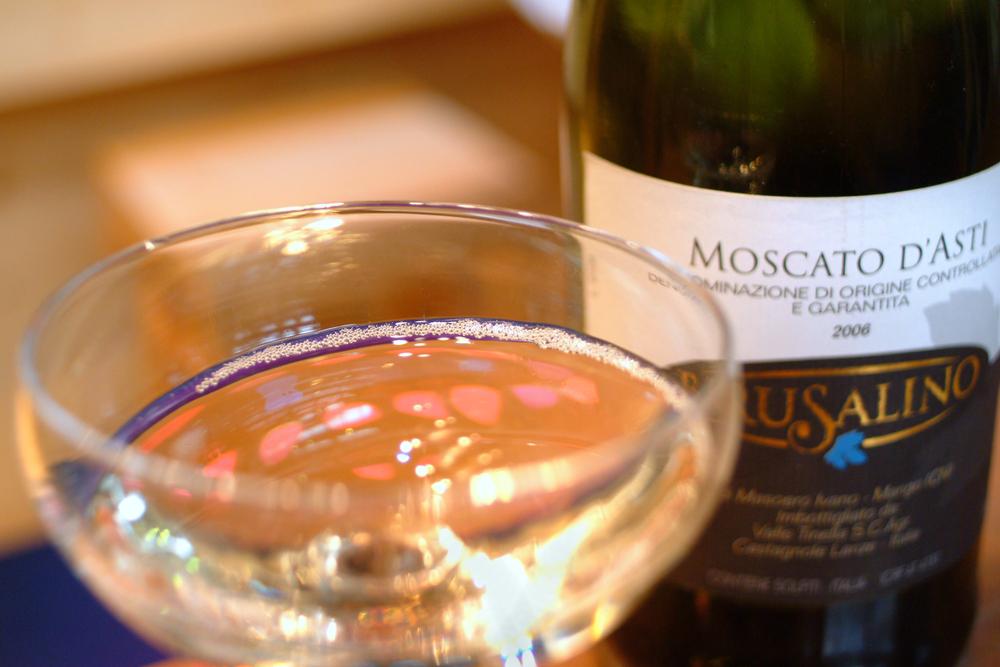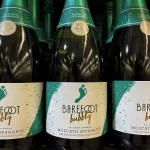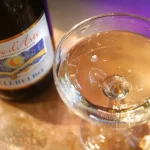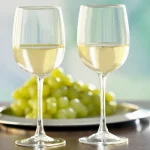Riesling and Moscato wines are some of the most popular globally and are often considered sweet. But are they truly sweet wines? As this debate rages on in the wine world, let’s take an honest and measured look at this topic. Then, we’ll break down Riesling and Moscato sweetness and compare these two wine types in multiple ways, giving you the help you need when choosing a new vintage.

Is Riesling Sweet?
Riesling wines are fascinating because they’re generally considered sweet by the average public, but they’re not always sweet!
Sweet Rieslings typically come from Germany, the country that popularized this wine type in the first place.
However, other regions tend to produce drier Riesling wines with less than three grams of residual sugar per liter.
That’s plenty dry! They also have an alcohol content of up to 10-15 percent, depending on the Riesling.
As a result, you may find yourself drinking fewer glasses of Riesling than Moscato.
Related: Comparing Riesling and Gewurztraminer. Or have a look at Riesling vs Chardonnay.
Is Moscato Sweet?
Moscato is definitely a sweet wine: its sugar content may be as high as 64 grams of residual sugar per liter.
As a result, they also have a lower alcohol content of around 5-7 percent. Furthermore, it often has a reasonably fizzy texture, making it exciting and tasty for people who like sweet wines.
While it’s not quite a dessert wine, it’s definitely a sweet option that many people will easily enjoy.
Some may find themselves enjoying multiple glasses of Moscato before noticing the alcohol kicking into effect.
Origins: Riesling
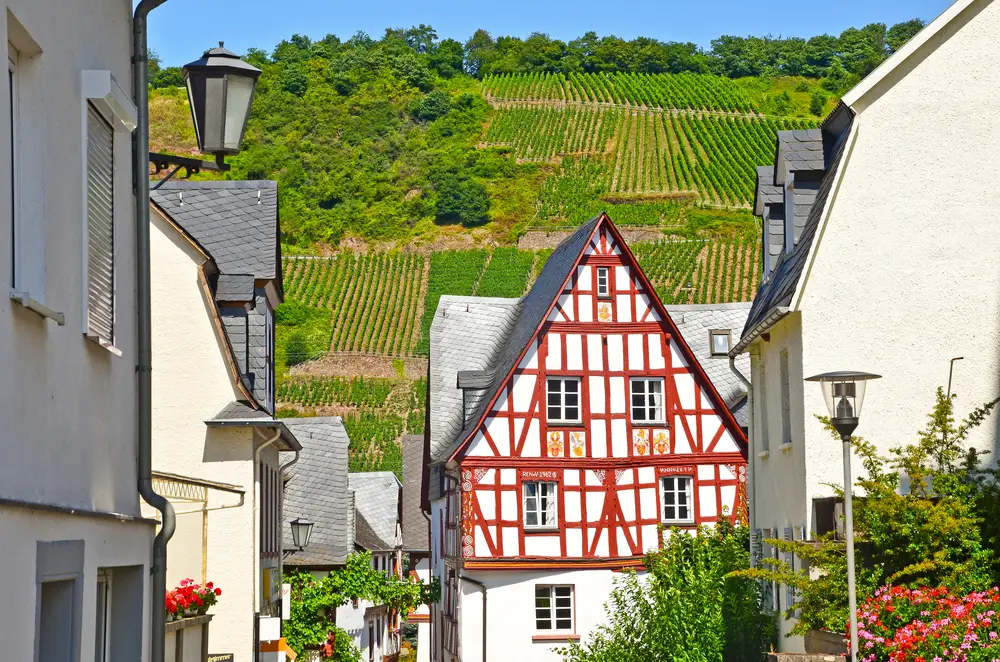
As mentioned previously, Riesling wines come from Germany, where they tend to be a little sweeter than other regions.
A true German Riesling will have up to 15 grams per liter of sugar and around an eight percent alcohol content.
Since its debut in 1435 (officially, now celebrated on the 13th March as International Riesling Day), it has spread to many other regions of the world, including cooler climates like New York and Washington State.
Riesling grapes tend to thrive in colder temperatures, unlike many other grapes, making them reasonably unique compared to other types.
Unfortunately, this colder growing temperature also affects their sweetness, as they may not mature as fully as grapes in warmer climates.
As a result, the grapes’ sugar may be lower.
Origins: Moscato
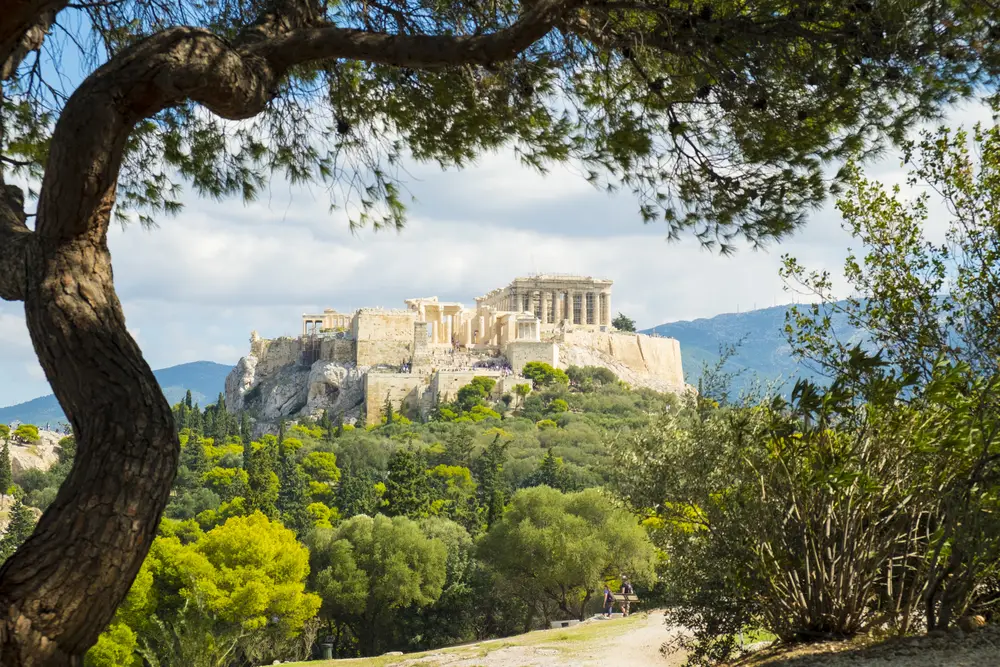
Moscato can trace its origins back to the Ancient Egyptians and Ancient Greeks, at least in recorded history.
However, even these groups referred to Moscato wines and grapes in terms that indicated it was pretty old even in their time. Since these early days, Moscato grapes have expanded to include over 200 varieties.
That explains why one Moscato may taste so wildly different from one brand to the next.
Thankfully, most should hold the same general sweetness you would expect from a Moscato.
What is essential to understand is that Moscato wines are also very diverse and may vary depending on where the grapes are grown and fermented.
Which of These Wines Are Sweeter, Riesling or Moscato?
As you can probably guess by the sections above, Moscato is generally a sweeter wine than Riesling, with lower alcohol content.
However, you may find that a true German Riesling has a sweeter taste than expected. While its sugar tends to max out at 15 grams per liter, that does put it within the semi-sweet category.
However, Moscato’s 64 grams of sugar per liter puts it well within the sweet range.
Taste Profile And Aromas of Riesling vs. Moscato
So, Moscato is sweeter than Riesling: this in and of itself is neither a good nor a bad thing.
Some people will love Moscato sweetness, while others prefer Riesling’s relative dryness.
Let’s break down their tastes and aromas to help give you a better understanding of which wine is right for you.
What Does Riesling and Moscato Wine Taste Like?

Riesling wine has a higher acidity than Moscato, meaning that it usually has a more bitter taste, even if you find a sweeter Riesling that comes closer to the lower Moscato sugar range.
Its overall taste will have more of an alcohol kick and typically has more of a lemonade taste than anything.
Expect some slightly nutty and earthy aftertastes, depending on your brand and its overall sweetness.
Moscato is surprisingly light and typically has minimal acidity and tannins.
As a result, it is often relatively more accessible for new wine drinkers to enjoy versus a Riesling.
Expect a taste similar to that of a peach juice, though you’ll likely get some lingering berry and fruity after tastes.
If fruity wines are more your thing, then this option is probably the best choice for you.
What Does Riesling and Moscato Wine Smell Like?
Smell and aroma are a vital part of enjoying wine. Unlike with other alcohols, where the smell is mostly an afterthought, winemakers carefully create aromatic blends that enhance a wine’s taste in many ways.
Comparing the two, Riesling is less aromatic than Moscato.
This means its odor is not as noticeable or as potent as with Moscato. However, Riesling is still more fragrant than other dry wines.
Riesling typically has a reasonably fruity smell, like lime, stone fruits, and peach.
Riesling may also have a slight gasoline undertone: not overpowering, but more with a slight lingering after smell.
Moscato is similarly fruity, often with a pretty obvious grape smell. However, it also has some subtle rose and white flower smells as well.
Which you prefer will depend on your taste.
Which Wine Has More Longevity? And Other Differences
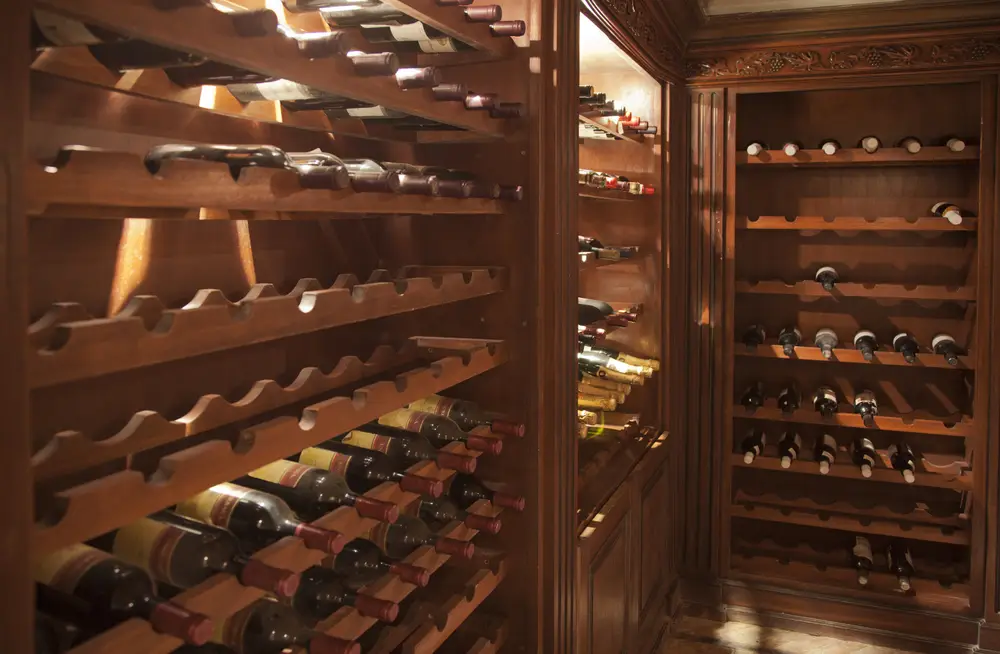
If you’re a wine connoisseur, you know that keeping wines for years (as well as proper storage temperature) is an integral part of your hobby.
Here’s one area where Riesling trumps Moscato, as Rieslings can last for much longer than Moscatos.
That’s because Riesling wines have a higher acidity that helps them last a bit longer when stored in a wine cellar.
Moscato lacks that acidity and tends to lose much of its appeal over time. That doesn’t mean that you can’t try to store Moscatos for extended periods.
A good wine cellar or even a wine fridge may help here.
Just understand that, as more time passes, your Moscato is likely to start losing some of its flavor and potency.
Typically, we’d recommend drinking it no more than 3-5 years after storage. Rieslings may last 10 years or longer and may even improve in flavor.
Related: Champagne can go bad, make sure you store this expensive wine properly.
Riesling vs. Moscato Food Pairings
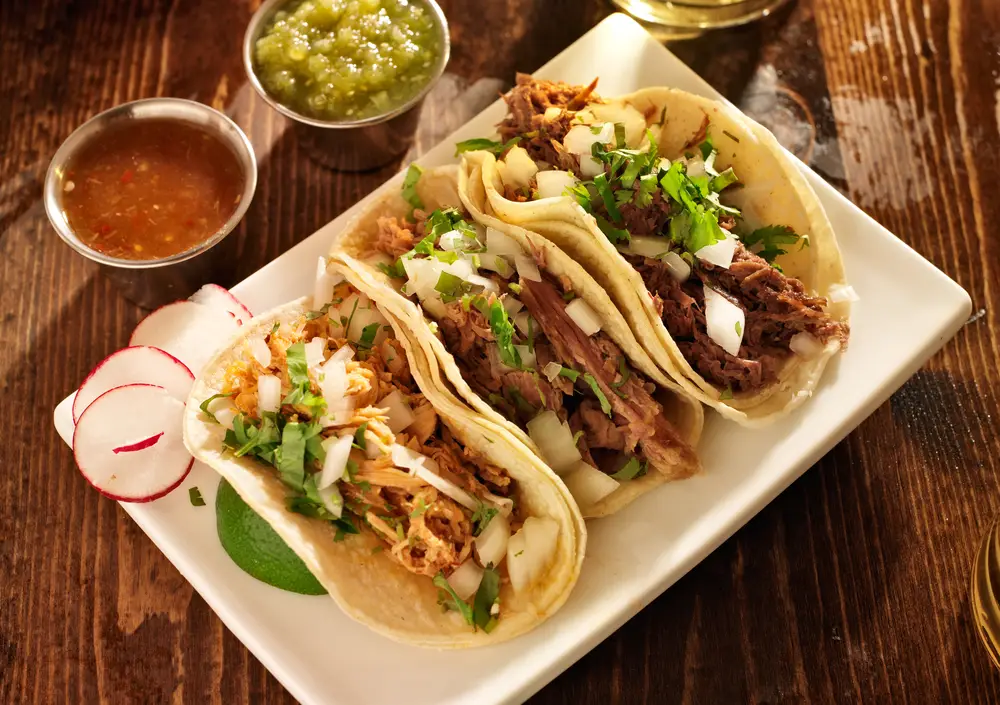
Riesling and Moscato wines have a similar taste (beyond their sweetness), they typically pair well with similar foods.
Riesling often goes very well with slightly sour or spicy foods due to its relative dryness.
You might find it works well with items like poultry, fish, and most vegetables. Most fruits are a little too sweet for Riesling pairings, though it may go well with some sour fruits.
Moscato is one of the best options for Mexican, Thai, and Indian food.
While Riesling’s acidity may help it pair well with many of these dishes (particularly with pig meats and any deep-fried foods), Moscato’s sweetness adds a little bit of balance to spiciness.
Rieslings and spicy foods go well together if you want to enhance the spiciness, as the acidity may boost this overall kick in the pants.
Tip: Check out our beginners guide on food pairing if you are unsure how to proceed.
What’s The Difference Between Moscato and Muscat?
Here’s a secret: Muscat and Moscato may refer to the same thing!
Moscato is simply the Italian name used for the Muscat grape.
And since Moscato wines became particularly popular in Italy during the Renaissance and more modern times, this term has kind of stuck.
That said, there are a few things that you must take into account here because Moscato doesn’t necessarily always equate to Muscat.
Typically, Muscat wines are very aromatic but are much drier than their Moscato derivatives. Their alcohol content is usually higher, sometimes as high as nearly 15 percent.
Winemakers often apply the term Moscato to sweeter Muscat wines to let wine fans know the difference.
What confuses this is the fact that sweet Muscat wines may also exist! As always, check your label to be sure.
Related: Moscato should not be confused for Moscato d’Asti.
Related: Want a great sparkling wine? You need Moscato d’Asti.
What Makes Wine Sweet?
Wine sweetness typically comes from choosing grapes at the right time and choosing shorter fermentation cycles.
Grapes are naturally sweet, and they possess varying sugar levels during their maturation process. And the yeast used during fermentation eats the sugar from grapes and converts it into alcohol.
So when you remove the yeast sooner, your wine ends up being much sweeter, but your alcohol level is lower.
This fact can help you better understand various wine varieties while browsing for a bottle.
How Do Winemakers Make Sweet Wine?
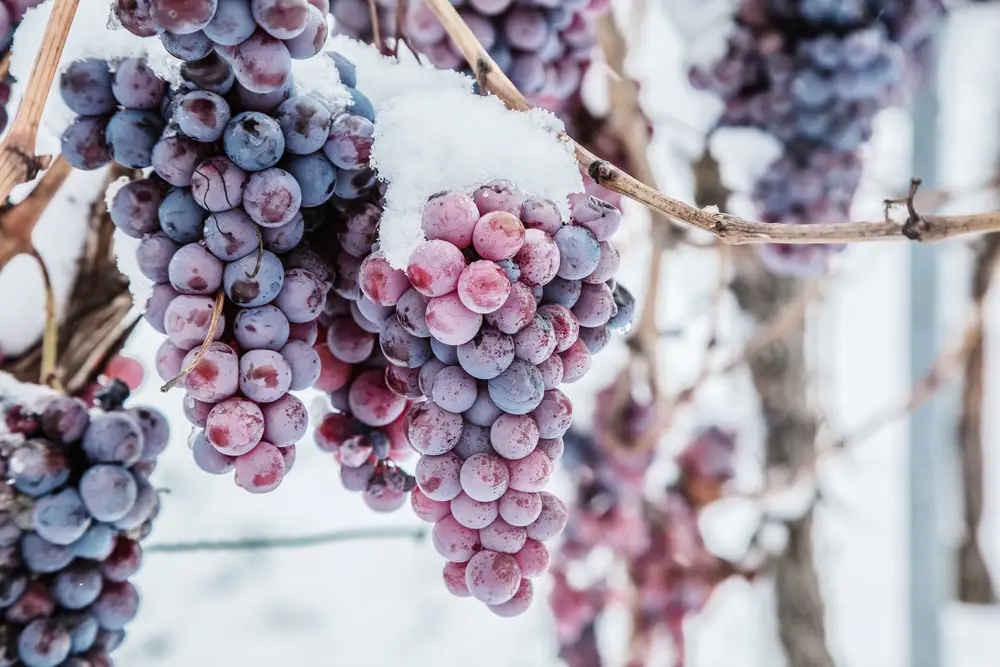
Winemakers may choose to harvest grapes later in the season because they’ll have more sugar but less acidity.
They may also dry out grapes to make raisins and use them instead. Raisins are like concentrated grapes and hold a large amount of sugar.
Some winemakers may also freeze grapes or let them rot slightly to improve their sweetness.
Others get lazy and just add more sugar to the mix during fermentation.
This option creates high-alcohol sweet wines, which are otherwise hard to make. However, it may make a wine that some people find too sweet to enjoy.
It also complicates the process below, which is why few winemakers use this approach except for with some dessert wines.
Use The Label To Determine If Your Wine Is Sweet
True wine connoisseurs understand this great trick, one that helps them figure out, at a glance, whether a wine is sweet or not.
The easiest way to check is to look at the alcohol level or ABV rating on the bottle. The higher the alcohol content, the drier your wine.
You’ll typically find that drier Rieslings usually have around 11-13 percent ABV ratings, with 7-9 percent for sweeter Rieslings.
Conversely, lower alcohol contents indicate a sweeter wine.
As mentioned previously, that’s because sweeter wines have the yeast removed sooner, which leaves more sugar and less alcohol in the final product.
As a result, sweet Moscato wines may have an ABV between 5-8 percent, while drier Muscat varieties may be up to 14-15 percent alcohol.
However, there’s another trick you can use with some Rieslings.
If your Riesling comes from Germany, check the label for the term “Trocken.” That phrase typically indicates that the wine is dry. Without that label, your Riesling will fall within the sweet range.
Next, check the ABV and use that as a guide when picking one of these wines. The rest of the German on the label can be ignored unless you understand this language and feel comfortable with it.
In Summary
A Riesling is your best choice if you want a long-lasting and relatively dry wine with high acidity that works well with some cheese and meat.
Moscato is a better option if you love sweeter wines but don’t quite want to go the full dessert route.
Picking one over the other is strictly down to personal taste, so use the information here to guide your selection process.
Riesling vs. Moscato FAQ
What Is Better, Riesling or Moscato?
Both Riesling and Moscato wines and grapes are great, and neither is really better than the other. It all comes down to personal taste.
If you like sweeter wines, go with Moscato.
If drier wines are more your thing, get a Riesling.
Any differences in quality within different brands may come down to quality assurance or the grape harvesting and fermenting methods.
Beyond that, it’s up to you because the two wines taste enough alike that choosing based on preference is vital.
What Are Similar Wines To Riesling?
If you’re fatigued with Rieslings or want to try something a little different, there are a few types that are similar enough to Rieslings that they may work well for you.
These include Gewurztraminer or Pinot Gris on the sweeter end.
If you’re more into drier Rieslings, you may also enjoy Chenin Blanc.
You may want to visit a winery near you that lets you taste test different options. In this way, you can get a real understanding of which alternative option works best for you.
What Are Similar Wines To Moscato?
Moscato wines are unique enough that finding similar wines may be challenging.
Interestingly, sweeter Riesling options may be close enough to qualify. Likewise, Gewurztraminer may be a good option if you want a slightly more acidic kick.
Moscato and Torrontes wines may also be a great choice if you’re more into aromatic wines that truly overwhelm your senses with rich smells.
This option is particularly good if you tend to enjoy Moscato’s sweeter varieties.
Is Riesling Sweet or Dry?
Riesling may run between a semi-sweet to a dry taste, depending on the manufacturer and production methods.
Even sweeter German Rieslings don’t quite have the fully sweet taste you get with wines with more residual sugar.
So in that sense, it’s probably more accurate to call it a dry wine.
However, you may also end up with a slightly sweeter Riesling, so investigate your brands carefully to find one that suits you.
Is Moscato Sweet or Dry?
Moscato is definitely a sweet wine.
Even drier Moscato options typically have around 15-20 grams per liter of residual sugar.
As a result, they have a lower alcohol content than Rieslings and may be a better choice as a dinner wine.
They may not be a good choice for nightcaps, though, as the sugar may keep you up later at night and make falling asleep a bit harder.
Some people may also find the extra sugar upsets their stomach if they have a sugar sensitivity.
Is Rose Sweeter Than Moscato?
Rose can be surprisingly dry in many circumstances, while Moscato wines may range towards the drier range in some circumstances.
Typically, a Rose will be sweeter than a Moscato because they tend to have more residual sugar in general.
Use the label-reading method described above to give yourself a better idea of whether your Rose wine is sweeter than a similar Moscato.
The wine manufacturer may include listings for each option that make this choice easier.
- Shrimp Cocktail (and More) Wine Pairing Guide - 09/06/2022
- What Wine Serving Sizes Look Like: Standard Size and More - 08/06/2022
- How Much Sugar is in Wine: Glass and Bottle Sugar Content - 08/06/2022

